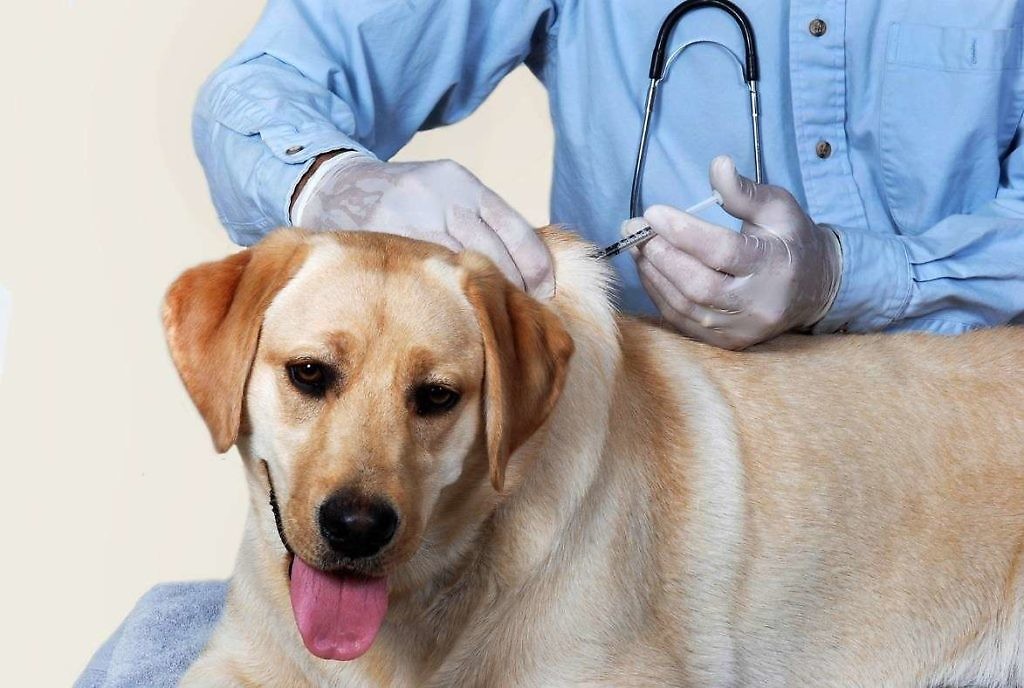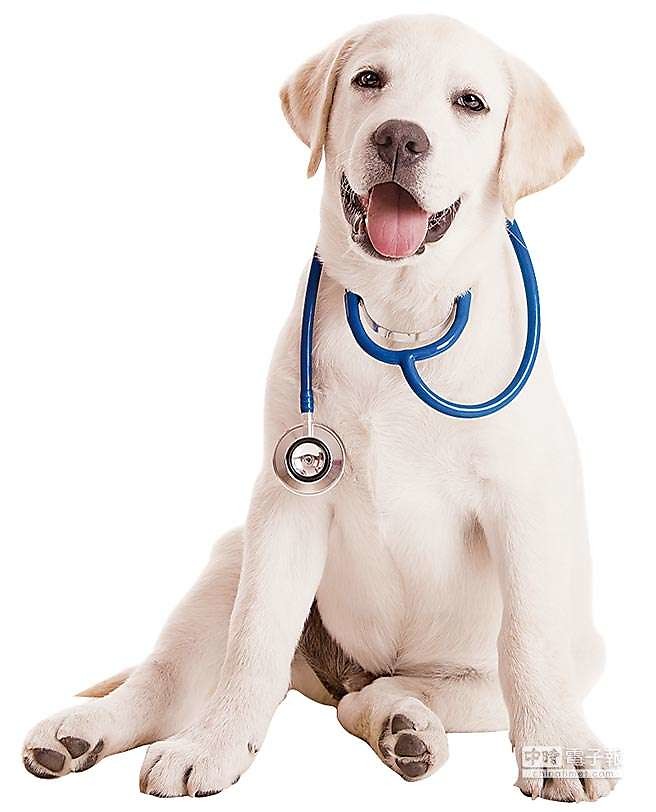One of the most important things you can do to give your dog a long and healthy life is to ensure that he/she is vaccinated against common and serious canine infectious diseases. Your dog’s mother gave her puppy immunity from disease for the first few weeks of existence by providing disease-fighting antibodies in her milk. After that period it’s up to you, with the help and advice of your veterinary surgeon, to provide that protection.
How do Vaccines Work?
Vaccines contain small quantities of altered or “killed” viruses, bacteria or other disease-causing organisms. When administered, they stimulate your dog’s immune system to produce disease-fighting cells and proteins – or antibodies – to
protect against disease.
When Should my Dog be Vaccinated?
The immunity that a puppy has at birth only lasts for a few weeks. It is then time to begin vaccination. The first vaccination is usually given in two doses, the first dose at around the age of 6-8 weeks and the second about 2-4 weeks later. Thereafter, your dog will require annual ‘booster’ vaccinations for the rest of his/her life to maintain protection. Above all, follow the vaccination schedule recommended by your veterinary surgeon – if there is too long an interval between vaccinations, your dog may no longer be fully protected.
Your pet should be protected against those diseases which are most common, highly contagious and which cause serious illness or death. Such diseases include Canine Parvovirus, Canine Distemper, Infectious Canine Hepatitis, Leptospirosis, Parainfluenza and Infectious Tracheobronchitis (also known as kennel cough). A rabies vaccine is required for pets travelling outside of Ireland as it is a requirement of the Pet Passport Scheme.
The cost of the vaccination includes a full health check and clinical examination by our vet, together with advice on any area of your dog’s healthcare.
Many insurance companies make annual vaccination a condition of honoring their policy.
The diseases that we protect dogs against through vaccination:
Canine Parvovirus
Very contagious, debilitating and widespread, the disease caused by this virus emerged in many parts of the world in 1978. Spread through infected faeces, the highly resistant virus can remain in the environment for many months. Symptoms include high fever, listlessness, vomiting and blood-stained diarrhoea. Vaccination is the only certain method of preventing this potentially fatal disease, which is most severe in young pups and elderly dogs.
Canine Distemper
Vaccination against this often fatal, hard-to-treat disease is essential. Though very rare in the UK thanks to vaccination, the disease is still widespread in some parts of the world and continued vigilance with vaccination is needed to prevent the UK dog population from becoming susceptible to the disease. Highly contagious, it is spread by discharges from the noses and eyes of infected dogs. Symptoms can include listlessness, fever, coughing, diarrhoea and vomiting; convulsions and paralysis may occur in the disease’s final stages. Sometimes the disease is also known as hardpad on account of the thickened fissured footpads that develop as a result of infection over time. The distemper virus attacks many organs, including the nervous system, which may be permanently damaged, even if the dog recovers.
Canine infectious hepatitis
Caused by canine adenovirus type I, this disease is transmitted among dogs by contact with secretions, such as saliva, infected urine or faeces. The virus commonly attacks the liver, and also potentially causes eye damage, the course of this disease can range from mild to fatal. Vaccination remains the best protection. A second virus, canine adenovirus 2 contributes as one of the possible causes of infectious tracheobronchitis (or kennel cough).
Leptospirosis
The most common form of this bacteria is widespread in rats and spread in their urine into the environment where it survives well in damp conditions and in water courses, ponds and lakes. It can occur so suddenly that there is little chance of effective antibiotic therapy. Dogs infected acutely with this disease can suffer liver or kidney damage that will need a long period of treatment if they are to fully recover. Just as much a concern is the lower grade disease which may go undiagnosed. It is also a disease that can infect and prove fatal in humans so maintaining the best protection by vaccinating annually specifically against this disease is highly advisable.
Canine Tracheobronchitis (‘Kennel Cough’)
Just as with contagious human respiratory disease kennel cough is easily transmitted from one dog to another, so vaccination is imperative if your pet will come into contact with other dogs in such situations as obedience training, the groomers, boarding at a kennel, neighbours pets or even just playing in the park. The disease is caused by various airborne bacteria and viruses, Bordetella bronchiseptica is one of the main causes of this disease and with the most common viral cause, parainfluenza, can be protected against with a separate intra-nasal vaccine administered as drops up the nose.You’ll first notice its onset by your dog’s dry, hacking cough that sounds as if an object has got stuck in the throat.
Other Vaccinations
After evaluating your dog’s particular situation and risk factors, your veterinary surgeon may also recommend vaccination against other infectious diseases. These might include:
Canine coronavirus
This virus attacks the intestinal system and occasionally proves fatal to puppies. Symptoms may develop quickly and can include vomiting, diarrhoea, dehydration, loss of appetite and depression.
Rabies
This incurable and fatal viral disease affects the central nervous system of almost all mammals, including humans. It is spread through contact with the saliva of infected animals through bites or any break in the skin. Though not present in the UK, this disease occurs widely throughout many other countries of the world.
How Effective is Vaccination?
Like any drug treatment or surgical procedure, the success of a vaccination cannot be 100% guaranteed. However, used in conjunction with proper nutrition and good hygiene, vaccination is clearly your pet’s best defence against disease. Plus, when you consider what treating a serious illness can cost you and your beloved dog in terms of both money and distress, prevention through vaccination is extremely cost-effective.






